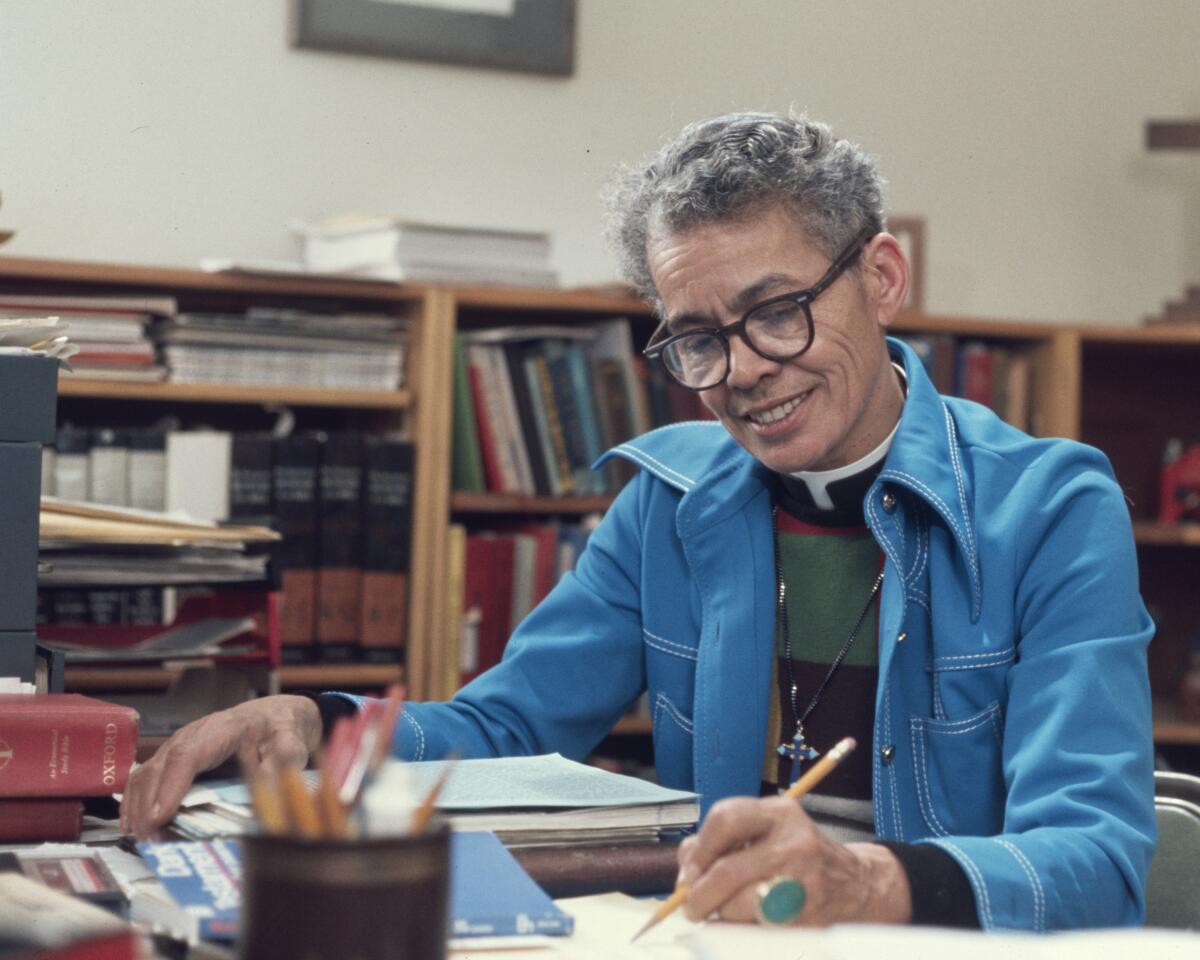Review: ‘My Name Is Pauli Murray’ recounts a groundbreaking life

- Share via
The Times is committed to reviewing theatrical film releases during the COVID-19 pandemic. Because moviegoing carries risks during this time, we remind readers to follow health and safety guidelines as outlined by the Centers for Disease Control and Prevention and local health officials.
The newest documentary from “RBG” director duo Julie Cohen and Betsy West, “My Name Is Pauli Murray” follows with detail the life of Anna Pauline “Pauli” Murray. A queer and gender nonconforming Black poet, civil rights lawyer, priest and activist, Murray’s history is one of firsts — the first African American to graduate from Yale law with a doctorate, the first Black deputy attorney general of California, and the first Black woman ever to be ordained within the Episcopal Church. A peer of Eleanor Roosevelt and Betty Friedan, Murray delivered radical work that reverberated through, not just generations, but the milestone achievements of many other figures of her time.
“My Name Is Pauli Murray” recognizes the all-too-quiet history of Murray’s many firsts and places them in juxtaposition with those more commonly recognized moments of political uprising. Before Rosa Parks refused to move from her seat in Montgomery, Ala., in 1955 there was Pauli Murray, defiantly sitting in the whites-only section of a Virginia bus in the year 1940. Before the Woolworth lunch counter sit-in in Greensboro in 1960, there were Murray and peers from Howard University leading a direct action to forcefully desegregate the Little Palace Cafeteria in 1943. What’s more, Murray’s pioneering legislative work on gender discrimination was the basis for the brief written by ACLU director Mel Wulf and Ruth Bader Ginsberg on behalf of Reed vs. Reed, the first major Supreme Court case to determine that discrimination based on gender was unconstitutional.
While not delving into historical semantics, “My Name Is Pauli Murray” makes a case for a refreshing of our collective memory regarding whom we remember most vividly when we think of such social and cultural milestones. It asks us to look at history as a symbiotic and collective action rather than as a chronological checklist of individual achievements. Where it stumbles, however, is in its artistic execution.
Too often, Cohen and West’s film falls short of mirroring the energy and resilience of Murray herself. We are given a historical catalog of Murray’s life, which at times makes one question what would be the difference between learning this history here or through another medium. The research is there, certainly, but it is presented as if it were just that, without thought for the ways it could be presented in a more expressive form. There is a sense here that film is at most a communicative tool to simply transmit this information, rather than a way to enliven and reactivate new ways of thinking about this galvanizing figure’s past and the resonance of their work in our present. This is a shame. Murray deserves nothing less than a history in full color.
'My Name Is Pauli Murray'
Rated: PG-13, for disturbing/violent images and thematic elements
Running time: 1 hour 31 minutes
Playing: Starts Sept. 17 in limited release, including the Landmark, West L.A.; Laemmle Monica, Santa Monica; Laemmle Playhouse 7, Pasadena; Laemmle Town Center, Encino; available Oct. 1 on Amazon Prime Video
More to Read
Only good movies
Get the Indie Focus newsletter, Mark Olsen's weekly guide to the world of cinema.
You may occasionally receive promotional content from the Los Angeles Times.








